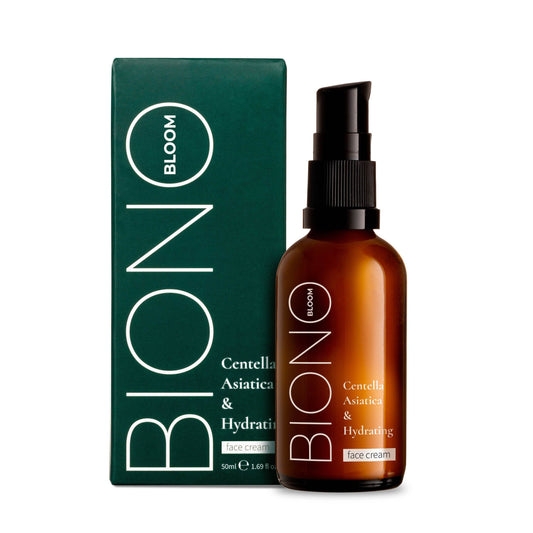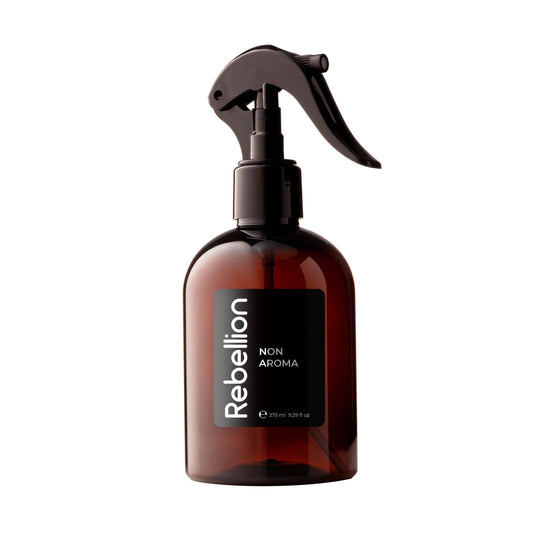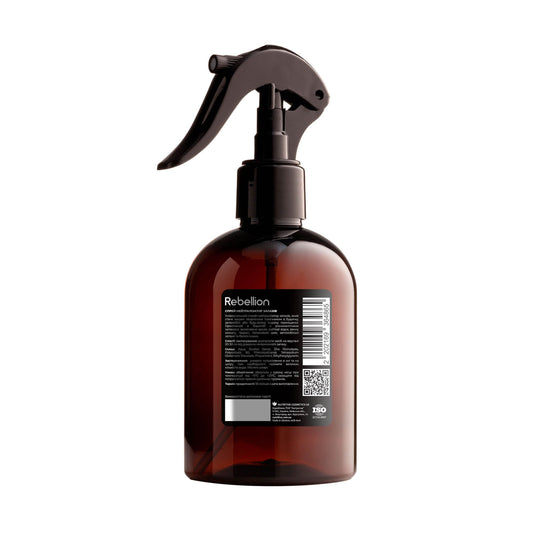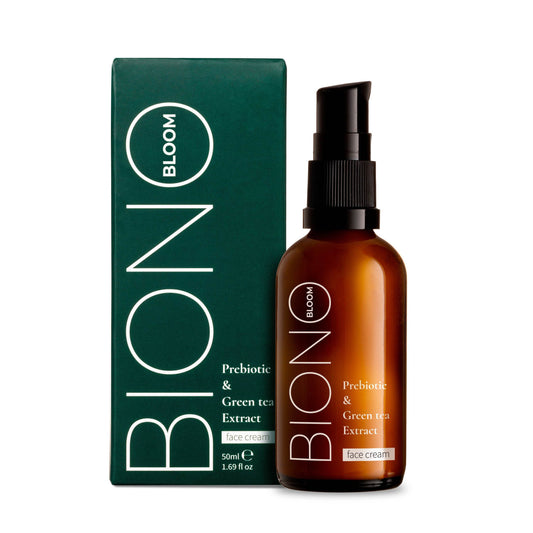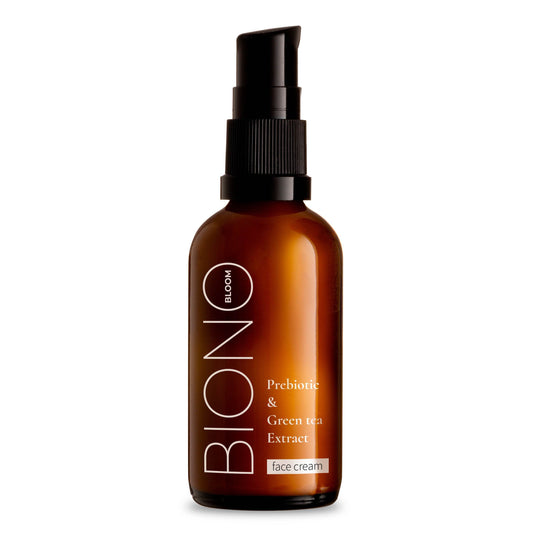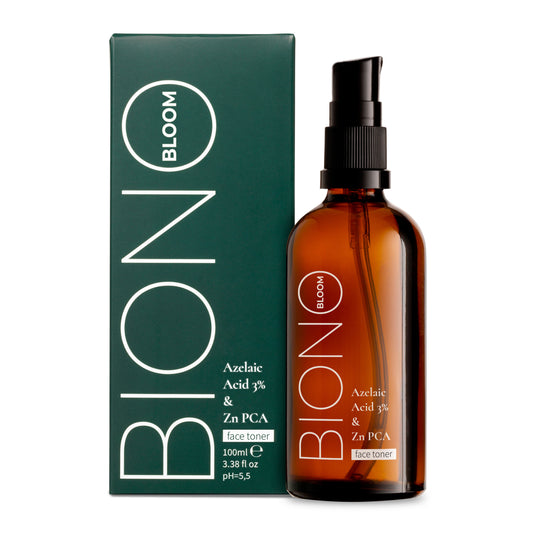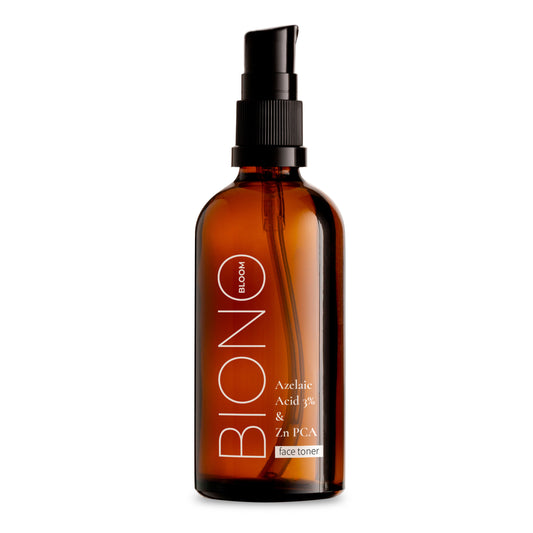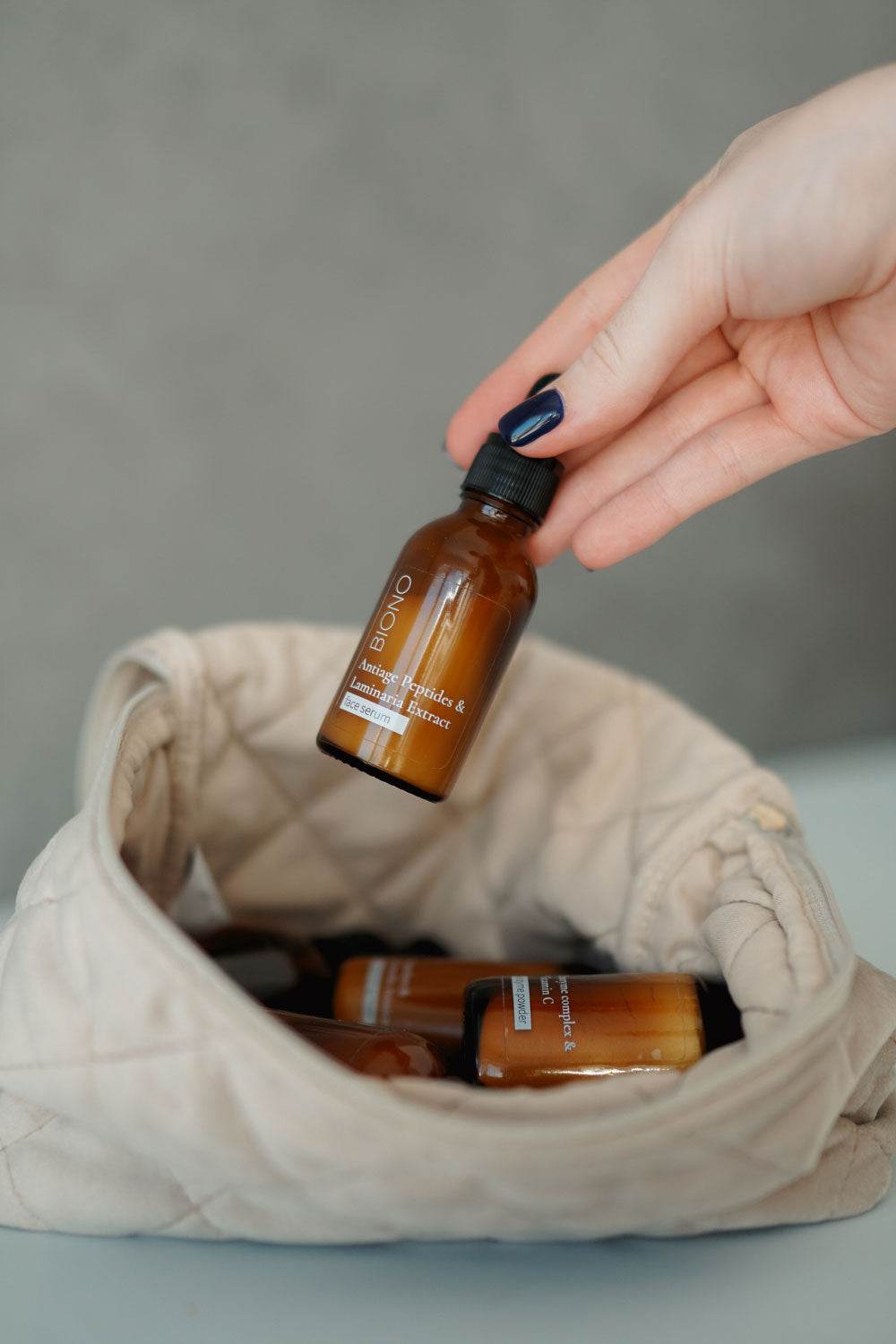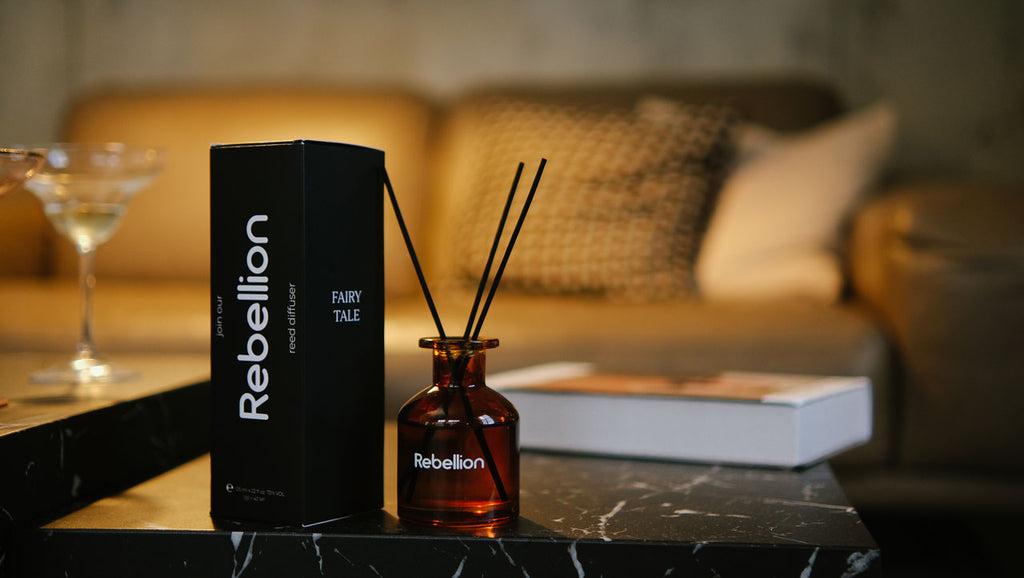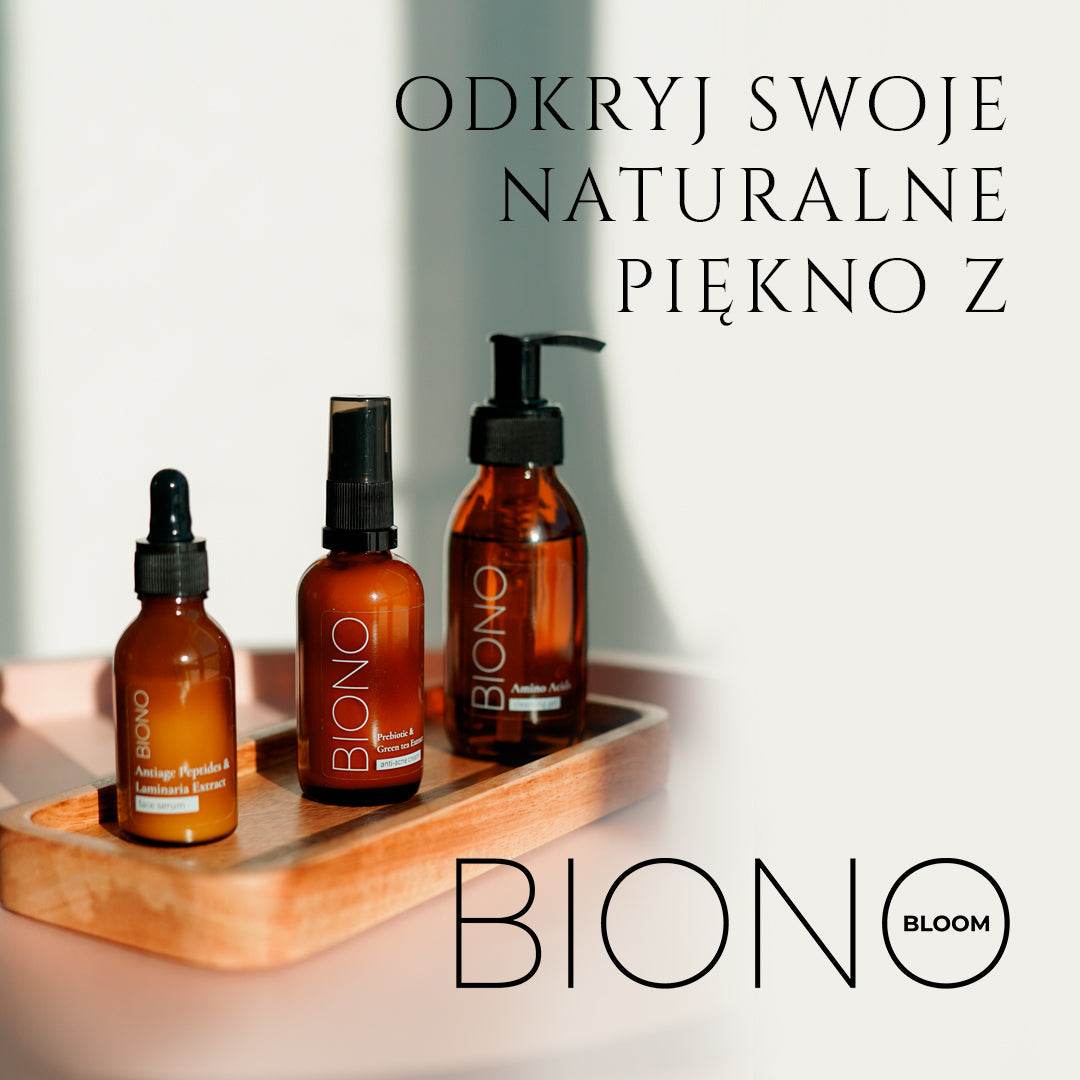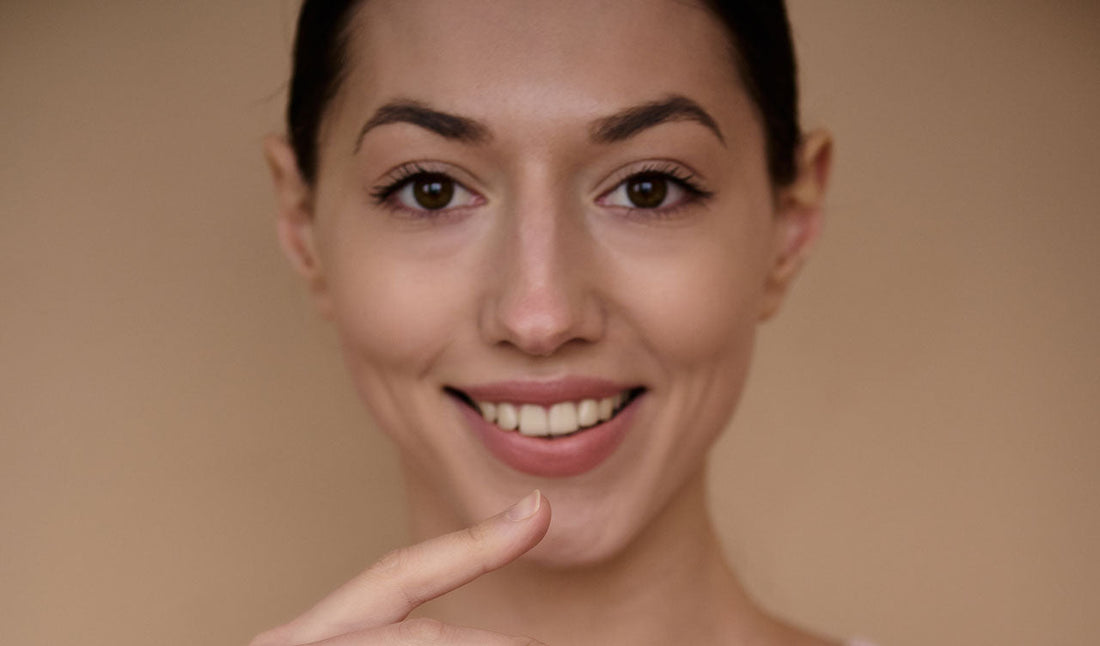
Hypoallergenic Cosmetics: How to Choose Safe Products for Sensitive Skin
Share
In a world where allergic reactions are becoming increasingly common, hypoallergenic cosmetics have become a true salvation for many people. Sensitive skin requires special care, and incorrectly selected cosmetic products can cause irritation, redness, and even serious allergic reactions.
Hypoallergenic cosmetics are specially formulated to minimize the risk of allergic reactions and irritation. They contain fewer potentially harmful ingredients, such as artificial fragrances, dyes, and preservatives, which often cause problems for sensitive skin. But are all products labeled "hypoallergenic" truly safe for everyone? How can you choose cosmetics that won't harm your skin?
Hypoallergenic cosmetics are becoming increasingly sought after, as many people experience various skin reactions to conventional cosmetics. Those with atopic dermatitis, eczema, and other chronic skin conditions are particularly susceptible. Properly selected hypoallergenic cosmetics can be a true lifesaver, providing effective care without the risk of worsening skin conditions.
What are hypoallergenic cosmetics and how do they differ from regular ones?
Hypoallergenic cosmetics are specially formulated products that have a reduced risk of causing allergic reactions. Their main difference from regular cosmetics lies in their carefully selected ingredients, which exclude the most common allergens and irritants. Manufacturers of such products strive to create cosmetics suitable for the widest possible audience, including those with sensitive skin.
It's important to understand that the term "hypoallergenic" is not regulated in many countries, so different manufacturers can apply their own meaning to it. Hypoallergenic cosmetics typically do not contain artificial fragrances, dyes, parabens, sulfates, and other ingredients that often cause irritation. Instead, they are enriched with soothing and regenerating ingredients such as aloe vera, panthenol, and thermal spring water, which help strengthen the skin's barrier and reduce skin sensitivity.
Another important feature of high-quality hypoallergenic cosmetics is dermatological testing. Before being released for sale, such products are tested on groups of volunteers with sensitive skin to ensure their safety. However, it's important to remember that even hypoallergenic products can cause reactions in some people, as everyone has individual sensitivities to different ingredients.
The most important ingredients of hypoallergenic cosmetics for effective care
The success of hypoallergenic cosmetics relies not only on the exclusion of potentially harmful ingredients but also on the inclusion of those that actively soothe, moisturize, and regenerate sensitive skin. Among these ingredients, chamomile, green tea, and aloe vera extracts are particularly valued, as they have anti-inflammatory properties and help reduce redness and irritation. These natural ingredients often become the basis of hypoallergenic cosmetics because they rarely cause allergic reactions.
For effective hydration, hypoallergenic cosmetics often contain hyaluronic acid, glycerin, and squalane—ingredients that help retain moisture in the skin without clogging pores. Ceramides and phospholipids are also important ingredients, as they rebuild the skin's protective barrier, making it less susceptible to external factors. Panthenol (provitamin B5), allantoin, and bisabolol are used to soothe irritated skin, accelerating tissue regeneration.
High-quality hypoallergenic cosmetics may also contain antioxidants like vitamins C and E, which protect cells from free radical damage and promote healthy-looking skin. Probiotics and prebiotics are the latest ingredients in hypoallergenic cosmetics, helping maintain a healthy skin microbiome, which is especially important for people with conditions like atopic dermatitis or rosacea. When choosing hypoallergenic cosmetics, it's worth paying attention to ingredients that are not only safe for sensitive skin but also beneficial.
How to choose hypoallergenic cosmetics for different skin types
Choosing hypoallergenic cosmetics for sensitive skin requires special attention to individual characteristics. For dry, sensitive skin, the best products are those with rich textures and additional moisturizing ingredients: jojoba, shea, or grapeseed oils, hyaluronic acid, and glycerin. These products will help rebuild the lipid barrier and prevent flaking and the feeling of tightness typical of dry skin.
People with oily, sensitive skin should look for hypoallergenic cosmetics with a lightweight consistency that are free of oils and comedogenic ingredients. These products should help regulate sebum production without drying out the skin. Hypoallergenic mattifying products often contain niacinamide, zinc, or kaolin, which effectively reduce oily shine without irritating the skin. For problematic, sensitive skin, look for products with anti-inflammatory ingredients like panthenol, allantoin, or green tea extract.
Combination, sensitive skin requires a special approach – it may be necessary to use different products for different areas of the face. A universal solution can be hypoallergenic products with balancing properties that normalize sebaceous gland function without overdrying. When choosing hypoallergenic cosmetics for any skin type, it's recommended to start with minimalist formulas with a small number of ingredients – the fewer ingredients, the less likely an allergic reaction.
Top 5 features of high-quality hypoallergenic cosmetics
High-quality hypoallergenic cosmetics have several key features to consider when choosing products. First, a minimal composition – the fewer ingredients a product contains, the lower the likelihood of an allergic reaction. High-quality hypoallergenic products often contain 10 to 15 ingredients, each of which serves a specific purpose. The absence of potential irritants such as synthetic fragrances, dyes, and harsh preservatives is a fundamental criterion that distinguishes truly safe cosmetics.
Another important characteristic is the pH level, which should be as close to the skin's natural level as possible (around 5.5). This helps maintain the protective barrier of the epidermis and prevent damage. High-quality hypoallergenic cosmetics usually highlight their pH balance on the packaging, as this is important information for consumers with sensitive skin. Furthermore, manufacturer transparency regarding product ingredients is another hallmark of reliable hypoallergenic cosmetics.
Clinical trials and dermatological testing are mandatory steps for truly hypoallergenic cosmetics. The results of these tests confirm the product's safety for sensitive skin and its hypoallergenic properties. Some manufacturers conduct additional hypoallergenic testing in specialized laboratories to ensure minimal risk to consumers. Certificates and awards from dermatological associations also serve as an indicator of the quality and safety of a cosmetic product.
Dermatologists' advice on using hypoallergenic cosmetics
Dermatologists emphasize that even with hypoallergenic cosmetics, certain rules should be followed to minimize the risk of reactions. Experts recommend conducting a patch test before using a new product. To do this, apply a small amount of the product to the inside of your wrist or behind your ear and observe the reaction for 24-48 hours. If redness, itching, or other signs of irritation occur, it is best to discontinue use.
Experts also advise following the principle of minimalism when caring for sensitive skin. The fewer different products and ingredients that come into contact with the skin, the lower the risk of allergic reactions. Start with the basics—cleanser, moisturizer, and sunscreen—and gradually add other products as needed. It's important to introduce new products one at a time, spaced 1-2 weeks apart, so that if a reaction occurs, the cause can be easily determined.
Dermatologists emphasize that for sensitive skin, it's especially important to avoid mechanical irritation. They recommend using gentle cleansers that don't disturb the skin's pH, and avoiding harsh scrubs and facial brushes. It's also worth avoiding extreme temperatures—hot water can exacerbate irritation, so it's better to wash your face with lukewarm water. Use soft towels to dry your face, blotting the skin rather than rubbing it. If you experience any adverse reactions to cosmetics, experts recommend immediately discontinuing use and consulting a dermatologist.
Application
Hypoallergenic cosmetics are an excellent choice for people with sensitive skin, allergies, or specific skin conditions. They help maintain skin health without causing irritation or allergic reactions. However, it's important to remember that the term "hypoallergenic" doesn't guarantee complete safety for everyone – everyone has individual sensitivities to different ingredients.
When choosing hypoallergenic cosmetics, pay attention to the ingredients, avoid products with potentially harmful ingredients, and prefer products with clinically proven effectiveness. Always test on a small area of skin before fully using a new product and follow dermatologist recommendations for proper care for sensitive skin.
Remember that the health of your skin is the result of a comprehensive approach. Hypoallergenic cosmetics are an important part of this approach, but a healthy lifestyle, proper nutrition, and stress reduction are equally important. Consult a dermatologist for personalized skincare recommendations and the most appropriate hypoallergenic cosmetics. With properly selected products, your skin will be healthy, moisturized, and protected from negative external influences.

